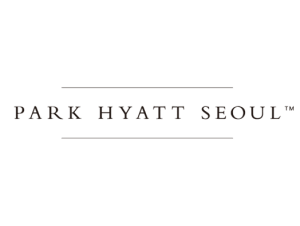.
Interview with Junwon Choi, Senior Manager of Industrial Team, Robert Walters Korea
“There are a lot of opportunities if you lessen the burden of perfect English language skill.”
.
.
Smart factories, a core part of the fourth industrial revolution, are driving significant changes in the landscape of the manufacturing industry. In the manufacturing job market, there are totally different issues coming up including re-education and re-employment for the existing workforce and a shortage of new employee candidates.
Sanup Ilbo met Junwon Choi, a senior manager at Robert Walters, a leading bilingual specialist professional recruitment consultancy, and discussed the changes in the job market caused by the “smart revolution” in the manufacturing industry we are facing.
New job opportunities to be created by increasing number of smart factories
The semiconductor industry is the most active sector in regards to the job market in the Korean manufacturing industry, Mr. Choi pointed out. Samsung Electronics and SK Hynix recorded their best performance ever last year. This led to an active employment market in related suppliers such as equipment, parts and component companies. Furthermore, the volume of employment is increasing in ADAS (Advanced Driver-Assistance System) and battery sectors as investment in electric vehicles and self-driving cars is increased continuously.
These changes in the manufacturing environment are taking place in line with the 4th industrial revolution. Particularly, professionals with capability in smart factory-relevant technologies including machine vision, factory automation and motion control and robot sensors are highly sought after.
Mr. Choi said, “Professionals in AI and deep learning technology, which are the core of the future manufacturing industry, are highly sought after. However, companies face a shortage of people with these talents who have good English skill.”
There is concern that smart factories will deprive humans of jobs and that elderly people will suffer more from a changing job environment. Mr. Choi replied, “We can increase productivity using robots which handle unsafe and impossible tasks. That is, robots can be used as a means to supplement, not substitute. Reflecting this, the outlook of the job market in the industry is bright because of demand for handling new tasks such as robot management, programming and maintenance.”
Forrester Research, a global market researcher, announced that new technology will create 15 million new jobs in the next 15 years in automation and AI, although these technologies will inevitably displace some of the workforce.
Mr. Choi added, “We should rather focus on the new opportunities created by the fourth industrial revolution and smart factories. In the case of middle-aged people with skills and experience, I can recommend moving to a foreign company after improving language skill.”
“Foreign companies do not necessarily want to hire engineer candidates who have a high level of English proficiency. They evaluate their willingness to use the foreign language. It will be enough to have a level of language skill to handle basic communications and paperwork in English. Some companies are considering a good attitude and professional knowledge as the most important criteria, not language.”
Highly skilled Koreans are popular for their high level of education and language ability
Many Koreans are reluctant to apply to foreign companies due to the burden of a different corporate culture. However, Mr. Choi, who has worked with numerous foreign companies, stressed that foreign companies’ preference toward Korean workers is high.
“The biggest reason foreign companies prefer Korean human resources are that they have a high level of language proficiency and a high number of highly educated people, while foreign companies located in Japan go through difficulties in hiring highly skilled workers due to language skills. Moreover, the salary demand for Korean candidates is not relatively high, although the average Korean’s education level is high, with a lot of master’s and doctor’s degrees,” he said.
He talked about the differences in recruitment process between Korean companies and foreign companies. “It is a common procedure for foreign companies to recruit throughout the year for experienced workers. Also, it may take a while with a maximum of seven interviews, including salary negotiations and reference checks. So, foreign professional recruitment firms are helpful for employees,” he advised.
“Since most foreign companies have a horizontal corporate culture, not vertical, they prefer talented workers who are suitable to this culture and have a flexible mindset. Foreign companies which have entered Korea by establishing Korean branches or that have taken over Korean companies have a stronger Korean corporate culture. Finally, a company tends to have a horizontal culture if the executive level has foreigners,” he added.
Source: Robert Walters Korea
Orginal article: www.kidd.co.kr/news/203205 (Korean)














